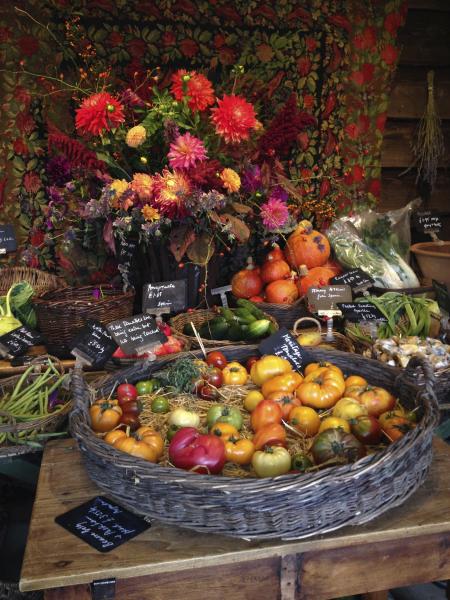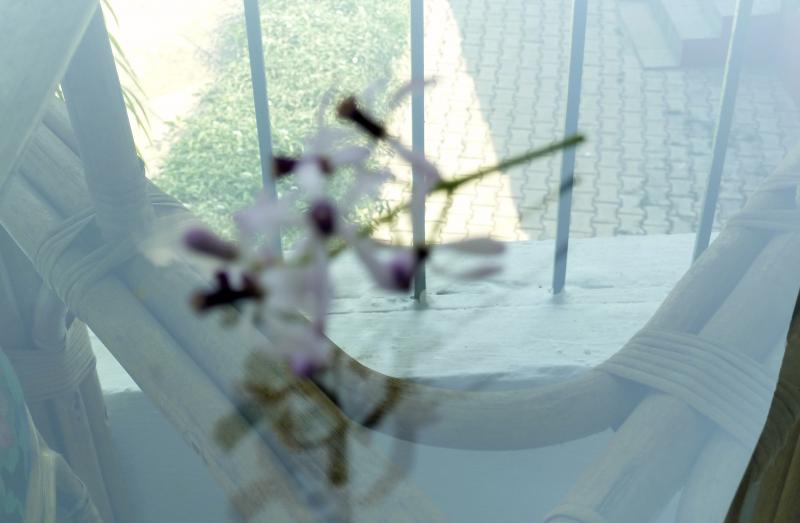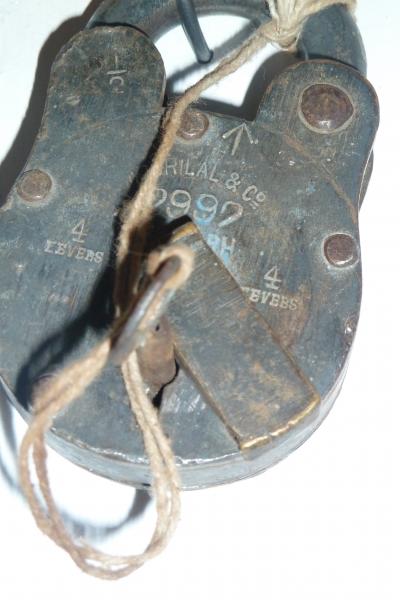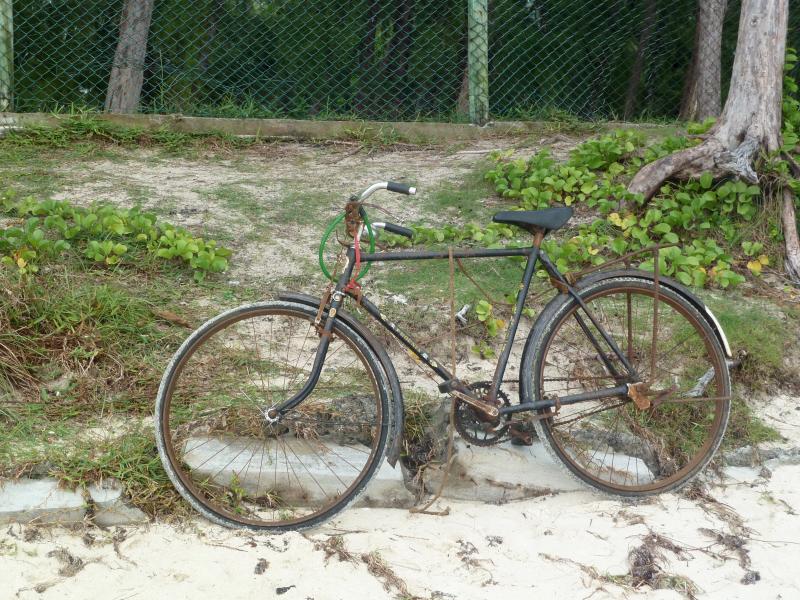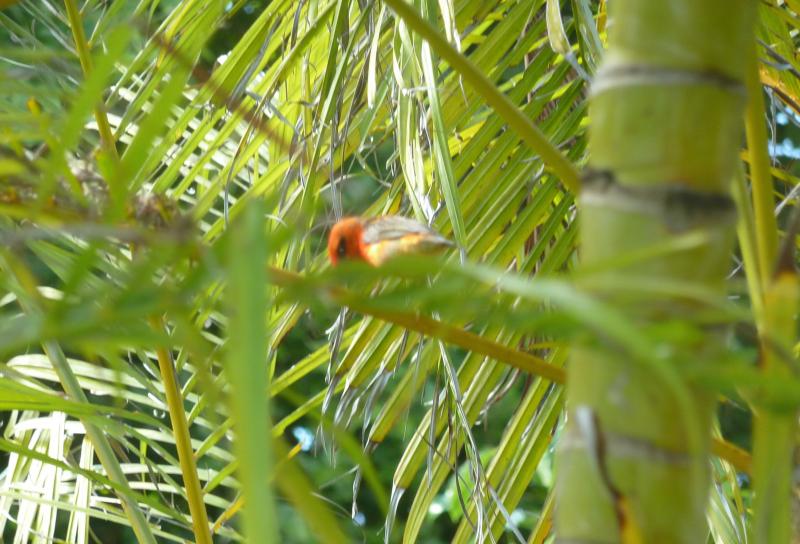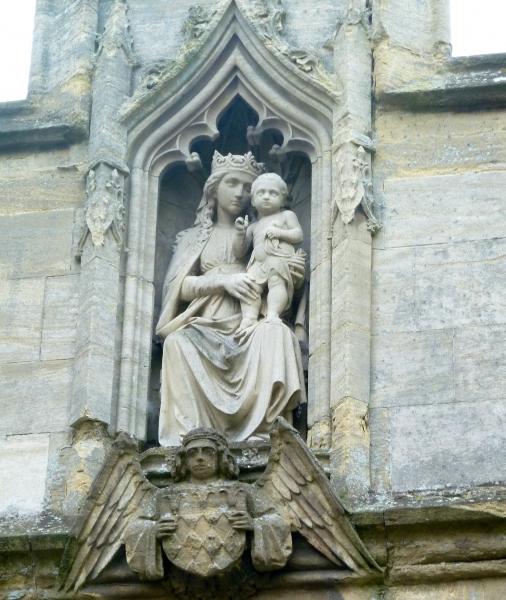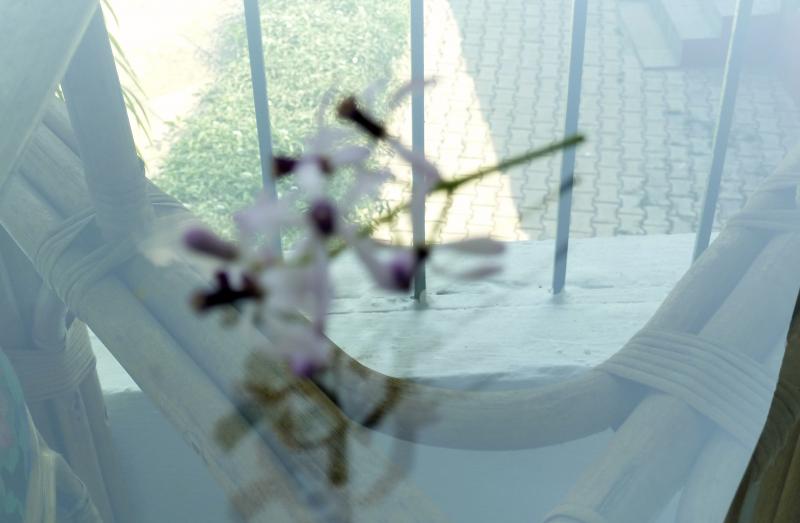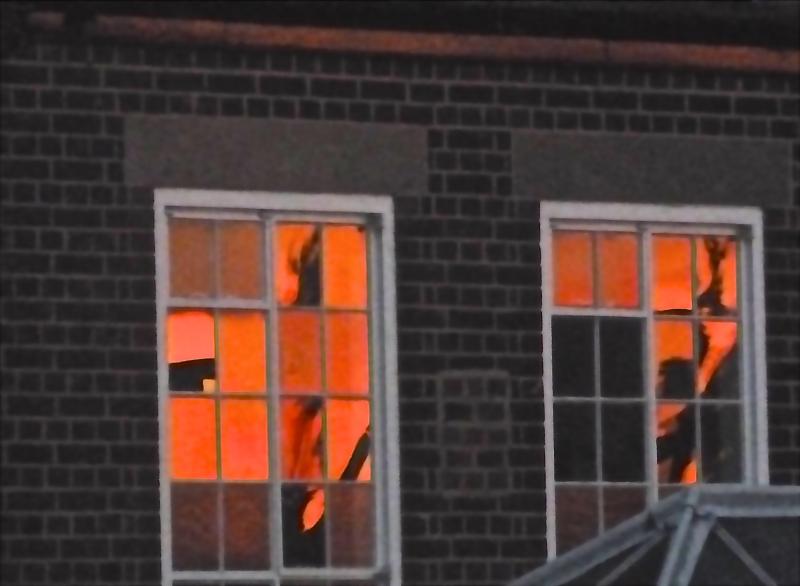
The above postcard is postmarked 2 August 1906, and shows Kingston Road in about 1905. The photographer was standing just south of the point where Walton Street (which runs north from central Oxford) suddenly becomes Kingston Road. On the left is the entrance to Walton Well Road (leading to Lucy’s Eagle Ironworks, the canal, and Port Meadow), and on the right is St John’s Road (now renamed St Bernard’s Road and leading to the Woodstock Road).
There are tram-lines in the middle of the road: these came up from Oxford via Beaumont Street, and terminated at the corner of Leckford Road.
At 1 Kingston Road on the left is the shop of Edward Hewlett, baker & confectioner, advertising cocoa and chocolate. He only had the shop from about 1905 to 1909 (until 1904 it was run by Mrs E. Vines, and from 1910 by Norman E. Minty). Five doors further up at No. 6 is Soanes & Taylor, coal merchants (which became Charles T. A. Wiblin’s butcher’s shop in 1913).
On the right at No. 179 is Edwin Smith’s ironmonger’s shop
This archive piece must have been written before the 1997 General Election- I can’t find the date of publication- in the days when I was a regular columnist for the Pioneer. I never got paid for any of my articles and then the paper folded…
The Conservative Party’s ill-fated Back to Basics campaign has a ring of deja vu. Family values, probity in public and private life, decency etc etc were vigorously aired a few years previously during Mrs Thatcher’s regime. Former party chairman Norman Tebbitt incurred the wrath of out-of-work persons when he made the helpful suggestion that they should emulate the energetic and gritty example of his father who, during the Depression, would hop on his bike and go looking for work. “On yer bike Norman” hung around his neck like a ball and chain.
Soon after an ad appeared on TV showing vignettes of life liberally buttered with thirties nostalgia: country lads in long grey flannel shorts, fair-isle pullovers and flat caps, tucking into hearty brown doorsteps and dodging the odd clip on the ear from irate authority figures. Very Just William.
Just when the country is agog with the latest sex scandal of the MP found dead with a stocking stuffed in his mouth, I happened to meet a diversion who might have walked off the steps of the Hovis ad mentioned above.
He arrived to read my electricity meter at 8 a.m. and ignored my petulant ill temper by remarking that he had been born in my house (116 Kingston Road, Oxford), in my own bedroom, just before the start of WW 11. Both his father and grandfather were butchers living above their shop with a slaughterhouse in the back yard. This same butcher’s shop- a few yards down the road- now houses a carpet cleaning agency. Mr Lindsey’s mother , bearing the Hardy-esque name of Greenslade, was a country girl from Devon, who was in service in London. One Sunday, while on a visit to her sister’s in Oxford, she stopped to rest her tired feet and sat on a bench. Up walked Mr Lindsey’s father and asked if she’d care to take a walk with him. He must have either followed her or noted her fresh Devon complexion in the park.
Mr Lindsey Sr happened to be a Druid, the religion of the ancient Celts, and he met his fellow Druids at the Wheatsheaf pub in Carfax every week where they were given to certain secret rites and ceremonies. Once a year they would dress up in white robes and funny hats and pile into a coach to journey down to Stonehenge and celebrate the summer solstice. Mr Lindsey, who was telling me the story of his family, laughed and said that the Druid business was probably a cover to put away a few beers. Or perhaps the humbler orders joined the Druids because the Masons were too elitist for them. His dad was careful never to drink at home but liked his pint at The Anchor, at the bottom of Kingston Road, nicknamed “Dolly’s Hut” on account of the an old codger called Dolly who worked two allotments in Port Meadow and lived in his shed all year round.
His dad was careful never to drink at home but liked his pint at The Anchor, at the bottom of Kingston Road, nicknamed “Dolly’s Hut” on account of the an old codger called Dolly who worked two allotments in Port Meadow and lived in his shed all year round.
I have had an allotment almost since I first came to Oxford in the seventies. My first one was on the site of the present Wolfson College and though I fancied I had green fingers, I was completely green behind the ears as far as vegetable cultivation went. Slowly I learned to double dig, plant potatoes to clean the soil of weeds, to hoe before they became entrenched, to compost and to bring on seedlings. I am on to my third allotment now and it is the most blissful experience spending time tending it.
Allotments, a very British institution (although they have their cousins in Germany known as Kleingartens), were started during the 1914 war and inspired by the peculiarly native characteristics of thrift, socialism and self-help. “Digging for Victory” was a national slogan and supposed to convey muscular self-sufficiency in providing vegetables and fruit for the family. During the idealistic sixties and seventies allotments became a fashionably virtuous occupation for the middle classes, but now seem to have lost their popularity (NB: it has been revived and now there are waiting lists for a plot).
Mr Lindsey Senior had two allotments and stored his produce of potatoes, carrots, turnips , swedes and parsnips in orange crates in the open side passage of my house, which is now covered and is a conservatory.
The Tory slogan of “Back to Basics” is also being applied to the alarmingly inefficient state education system, ever since a belated admission in 1993 that it was failing too many students. (So what’s new?) Apparently roughly 20 per cent of school children in Britain are semi-literate, or have never fully mastered reading skills.
My meter-reader’s parents were not just literate but possessed a fine copperplate handwriting and conscientiously taught their son to read before he started school. He went to the local Church of England St Phillip and St James, known affectionately as Pip and Jim. My daughter Priya went there too but, sadly, needed a whole year of special tuition in writing and maths after joining Greycoats- a private prep school. Unfortunately “Back to Basics” included a savage discipline and Mr Lindsey came home every day with sore knuckles. Another boy lost an eye when a master threw a blackboard cleaner at him. The man apologized but kept his job. Nowadays he would be jailed for lifting a finger at a child.
Each day Mr Lindsey ran home for lunch and after school ended went off to play with his pals without fear of being molested or kidnapped. They would kick a football in Tackley Place and two of them kept watch for the local bobby. If they were caught then their ears were soundly boxed.
Mr Lindsey talked about Port Meadow (see my post of 27.6.2013) with great nostalgia: how the great tract of common land- yards away from my house- used to ice over in hard winters. The whole of Oxford would turn out to skate and play ice-hockey (with sticks and a stone) in the Breugelesque landscape with the sun setting ruddily over the river. The boys rode the horses grazing in the meadow and loosed the pleasure boats in Bossom’s Boatyard. In summer they stole fruit from the allotments.
At fifteen Mr Lindsey left school and was found a job by his Headmaster in the Human Anatomy Lab at the University. He worked as a lab assistant for six years, earning a salary of £1. 17 shillings and sixpence a week.

Winter scene by Pieter Breugel the Elder













